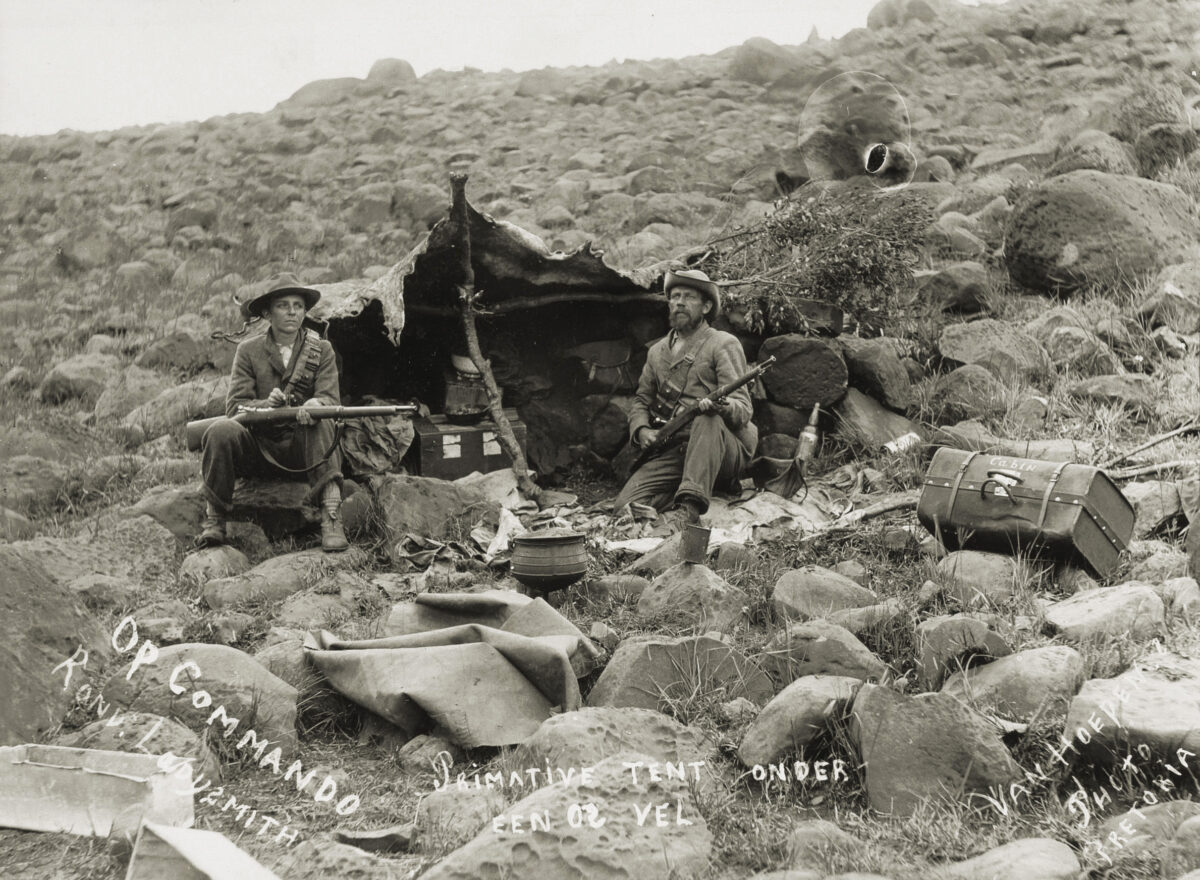When war broke out in South Africa between the British Empire and the Boer Republics in 1899, the odds were stacked against the Boers. Settlers of Dutch ancestry, the Boers lived in small, inland, rural nations with limited governance and no standing army. The British were confident in their reputation as the world’s strongest military. They had not counted, however, on the Boer commandos.
Since their founding, the Boers of the Orange Free State and the South African Republic had relied on militias for their defense. These militia groups, called “kommandos” in Afrikaans, would be spontaneously formed by neighbors and community members, who would elect officers from within their ranks. They wore no uniforms and they had little training, but what they lacked in organization, they made up for in frontier hardiness.
The British army, well-funded and equipped, made the most of modern technology. Large artillery emplacements, machine gun teams, and heavily armored trains allowed efficient and effective control of roads and cities. Pretoria and Bloemfontein fell quickly, and the British expected the war to wrap up neatly with no central authority. Instead, the occupying force found themselves trapped, surrounded on all sides by tens of thousands of guerilla soldiers.
The British reliance on rail and telegraph lines proved a weakness, as mobile commandos on horseback knew exactly where to find British supply trains or command posts. Meanwhile, rugged mountaineers set up ambushes in the rocky terrain they knew by heart. British soldiers pinned down for hours by snipers suffered as much from heat exhaustion in their heavy uniforms as from bullets. All the while, commandos could retreat to farmhouses, where local women housed, fed, and spied for the Boer militiamen.
An exhausted, embarrassed British army eventually picked up on this home-field advantage. In the end, scorched earth was the only strategy left to the British, who burned homes, and rounded up Boer wives and children in concentration camps, effectively holding them hostage and starving many to death. Reluctantly, the Boers surrendered in 1902, choosing their families over their freedom.
historynet magazines
Our 9 best-selling history titles feature in-depth storytelling and iconic imagery to engage and inform on the people, the wars, and the events that shaped America and the world.


